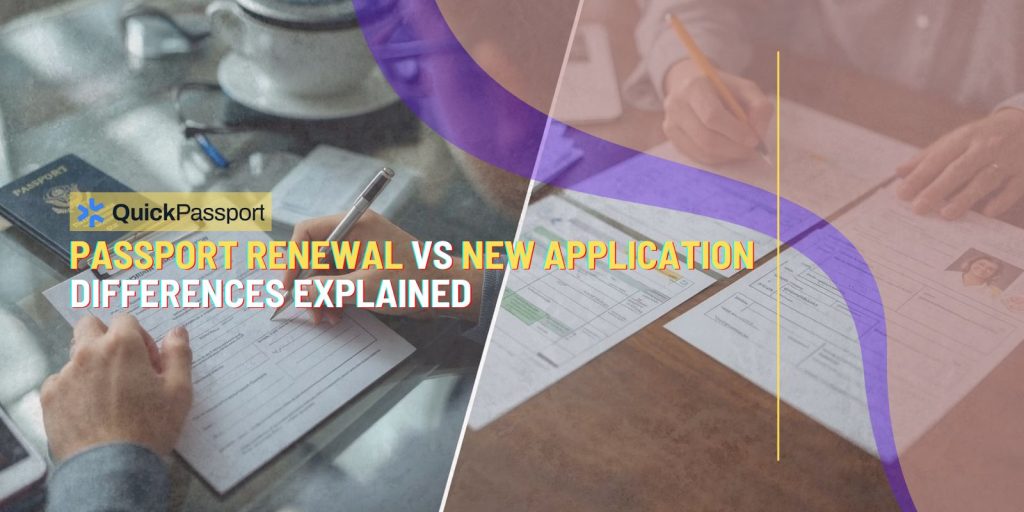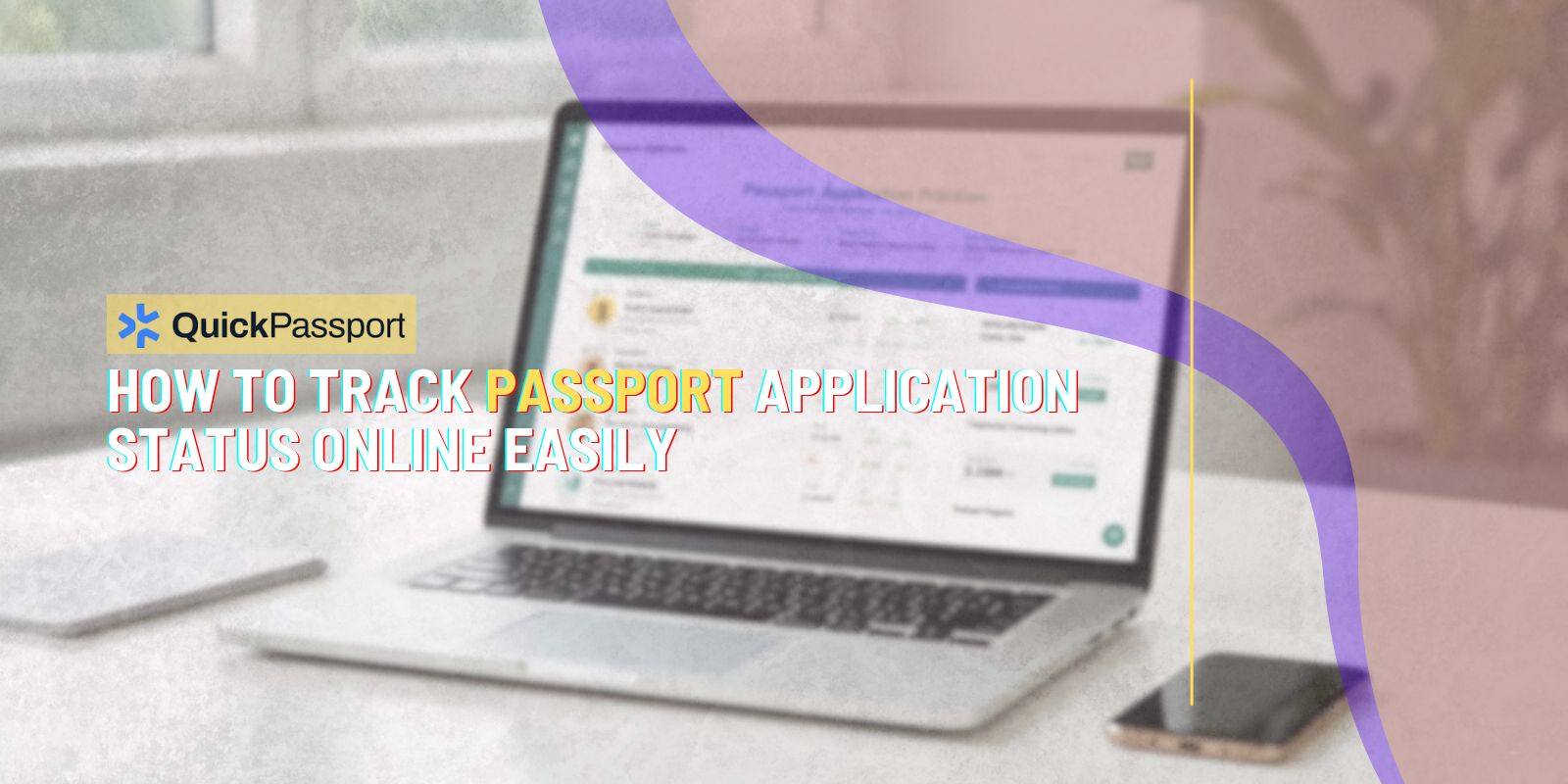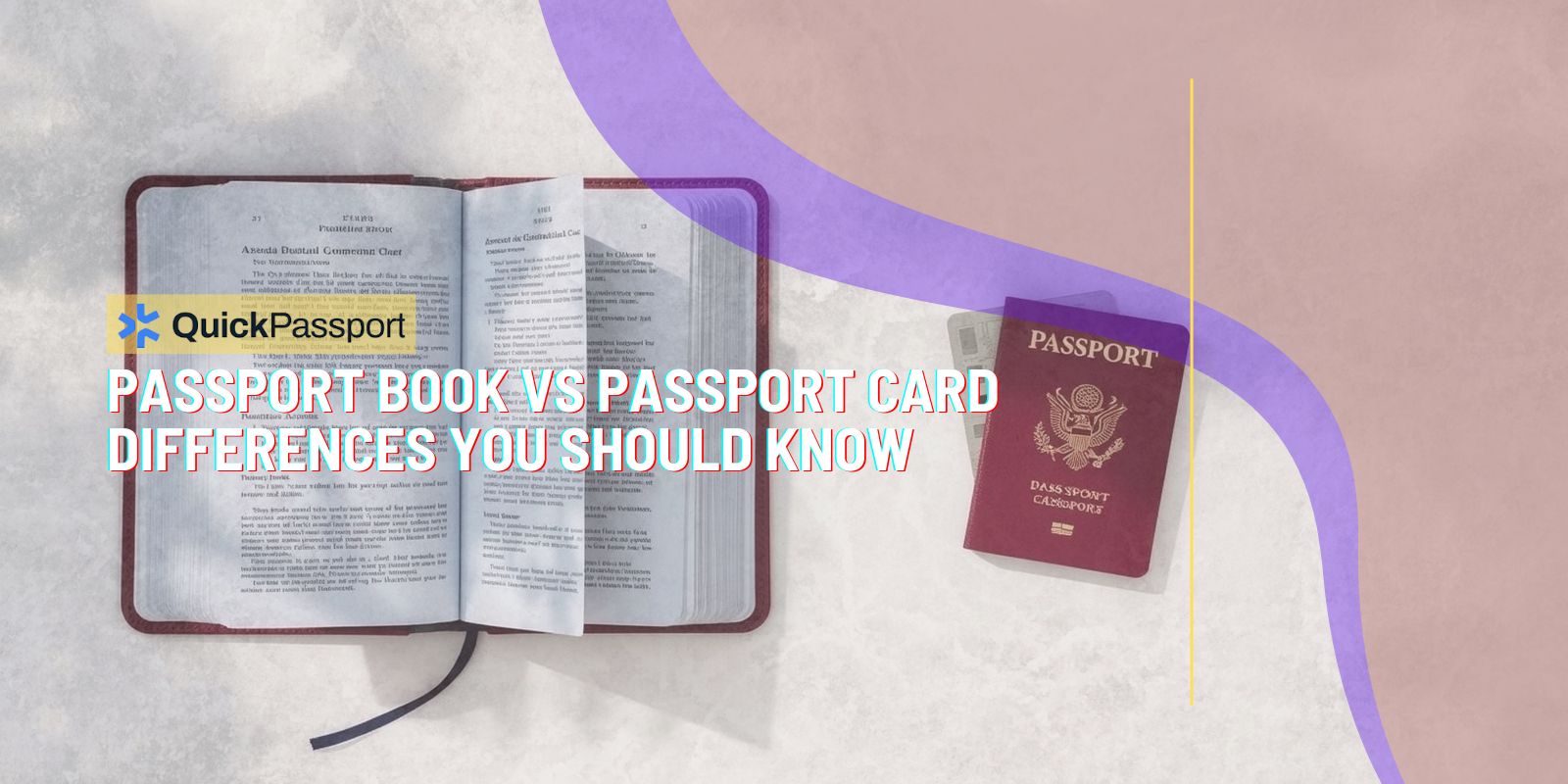When it comes to obtaining a U.S. passport, understanding whether you need to pursue a renewal or submit a completely new application can save you significant time, money, and frustration. The distinction between these two processes isn’t always immediately clear, especially for first-time applicants or those who haven’t traveled internationally in several years. Each pathway has its own specific requirements, documentation needs, processing timelines, and associated costs that can dramatically impact your travel planning.
The confusion often stems from the fact that both processes ultimately result in the same outcome – a valid U.S. passport – but the journey to reach that destination varies considerably. Passport renewal is typically a streamlined process designed for individuals whose previous passport meets certain criteria, while new applications involve more comprehensive verification procedures and in-person appointments. Understanding these differences becomes particularly crucial when you’re working with tight travel deadlines or trying to budget for upcoming international trips.
Many Miami residents find themselves caught off guard when they discover their expired passport doesn’t qualify for the simpler renewal process, forcing them into the more complex new application pathway. This scenario becomes even more challenging during peak travel seasons when appointment availability becomes limited and processing times may extend beyond normal expectations. The key to avoiding these complications lies in understanding the specific criteria that determine which process applies to your situation.
Beyond the basic eligibility requirements, the differences extend to where you can submit your application, what documentation you’ll need to provide, and how long you’ll need to wait for your new passport to arrive. Renewal applications can often be submitted by mail, while new applications typically require in-person visits to authorized acceptance facilities. These logistical differences can significantly impact your planning, especially if you’re dealing with work schedules, family commitments, or mobility limitations.
The financial implications also vary between the two processes, with different fee structures and potential expediting costs that can affect your travel budget. Understanding these cost differences upfront allows you to make informed decisions about timing and service levels, ensuring you get the documentation you need without unnecessary expenses or delays.
Key Takeaways
- Eligibility determines your path: Your ability to renew depends on having an undamaged passport issued within the last 15 years when you were 16 or older, with your current legal name matching the passport name or having documented name changes.
- Renewal offers convenience advantages: Qualified applicants can submit renewal applications by mail, avoiding in-person appointments and the need to provide extensive supporting documentation like birth certificates or naturalization papers.
- New applications require comprehensive verification: First-time applicants and those who don’t meet renewal criteria must appear in person at authorized acceptance facilities with primary citizenship documents and identification.
- Processing times vary significantly: Standard renewal typically takes 6-8 weeks, while new applications may require 8-11 weeks due to additional verification steps and appointment scheduling requirements.
- Cost structures differ between processes: While base fees may be similar, new applications include additional acceptance fees, and expedited services have different pricing tiers depending on your chosen pathway.
- Documentation requirements are distinctly different: Renewals need only your previous passport, application form, photo, and fee, while new applications require primary citizenship proof, identification, and potentially additional supporting documents.
- Name changes impact your options: Significant name changes may disqualify you from renewal eligibility, requiring you to follow new application procedures even if you previously held a valid passport.
- Age restrictions apply to renewals: Passports issued to minors under 16 cannot be renewed regardless of timeframe, requiring new application procedures once the holder reaches adulthood.
Understanding Passport Renewal vs New Application Basics
The fundamental distinction between passport renewal and new application processes lies in the verification requirements and documentation needed to establish your eligibility for U.S. passport privileges. Renewal processes are designed for individuals who have previously been vetted through the comprehensive new application procedure and whose circumstances haven’t changed significantly since their last passport issuance. This streamlined approach recognizes that much of the identity and citizenship verification work has already been completed.
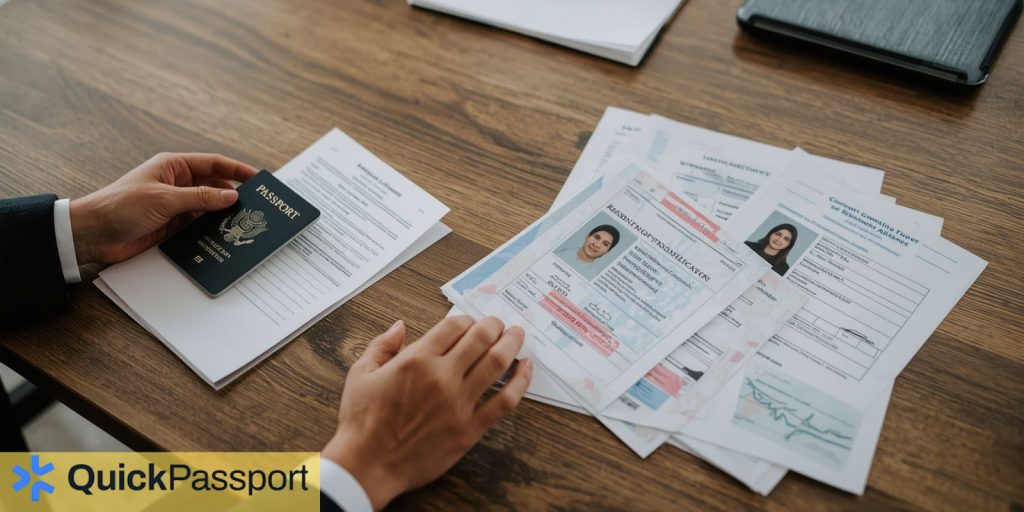
New applications, conversely, represent the full verification process required for anyone seeking their first passport or those whose previous passport doesn’t meet renewal criteria. This comprehensive approach involves thorough documentation review, identity verification, and citizenship confirmation that forms the foundation of passport security protocols. The process ensures that only eligible U.S. citizens receive passport privileges while maintaining the document’s integrity as a trusted form of international identification.
The eligibility criteria for renewal are quite specific and non-negotiable. Your previous passport must be undamaged and in your possession, issued within the last 15 years, and obtained when you were 16 years of age or older. Additionally, the passport must be issued in your current legal name, or you must be able to document any name changes with appropriate legal documentation. If any of these criteria aren’t met, you’ll need to follow the new application process regardless of your previous passport history.
Understanding these basic distinctions helps you quickly identify which pathway applies to your situation and begin gathering the appropriate documentation. For Miami residents planning international travel, this early identification can significantly impact your timeline and planning process. If you need detailed guidance on specific requirements, our comprehensive overview of documentation and eligibility criteria provides in-depth information tailored to local processing options.
Renewal Process Requirements and Procedures
The passport renewal process offers a significantly streamlined experience for eligible applicants, primarily because much of the verification groundwork was completed during your initial passport application. This efficiency translates into fewer documentation requirements, no in-person appointment necessities, and generally faster processing times. The convenience factor makes renewal the preferred option for frequent travelers who need to maintain current passport status without extensive administrative overhead.
To qualify for renewal, your existing passport must meet strict criteria that ensure continuity and security. The 15-year timeframe requirement exists because security features, technology, and verification standards evolve over time, necessitating periodic complete re-verification through new application processes. The age requirement of 16 or older at the time of previous issuance reflects the fact that identity verification for minors involves different procedures and parental consent requirements that don’t carry forward into adulthood.
The documentation requirements for renewal are refreshingly straightforward compared to new applications. You’ll need your most recent passport, which will be returned to you along with your new passport, a completed DS-82 application form, one recent passport photo meeting current specifications, and the appropriate fees. The simplicity of this document list reflects the State Department’s confidence in the previous verification process and your established passport history.
Name changes present one of the most common complications in renewal eligibility. If your current legal name differs from the name on your passport, you can still renew if the change occurred through marriage, divorce, or court order, and you can provide appropriate documentation such as a certified marriage certificate, divorce decree, or court order. However, if you cannot document the name change or if multiple name changes have occurred, you may need to pursue a new application instead.
The submission process for renewals typically involves mailing your application package to the designated processing facility, though some locations may offer in-person renewal services. This mail-based system eliminates the need to schedule appointments at acceptance facilities, making it particularly convenient for busy professionals or those with limited mobility. However, mailing your current passport does mean you’ll be without this important document during processing, which could impact domestic travel plans since passports serve as primary identification for air travel.
Processing times for renewals generally run 6-8 weeks for standard service, with expedited options available for additional fees when time constraints require faster turnaround. For Miami residents who need more detailed information about the renewal process and local options, you can find step-by-step renewal guidance that covers local processing facilities and timeline expectations.
New Application Requirements and Procedures
New passport applications represent the comprehensive verification process that establishes your eligibility for U.S. passport privileges from the ground up. This thorough approach is necessary for first-time applicants, those whose previous passports don’t meet renewal criteria, and individuals whose circumstances have changed significantly since their last passport issuance. The process involves multiple layers of documentation review and identity verification that form the security foundation of the U.S. passport system.
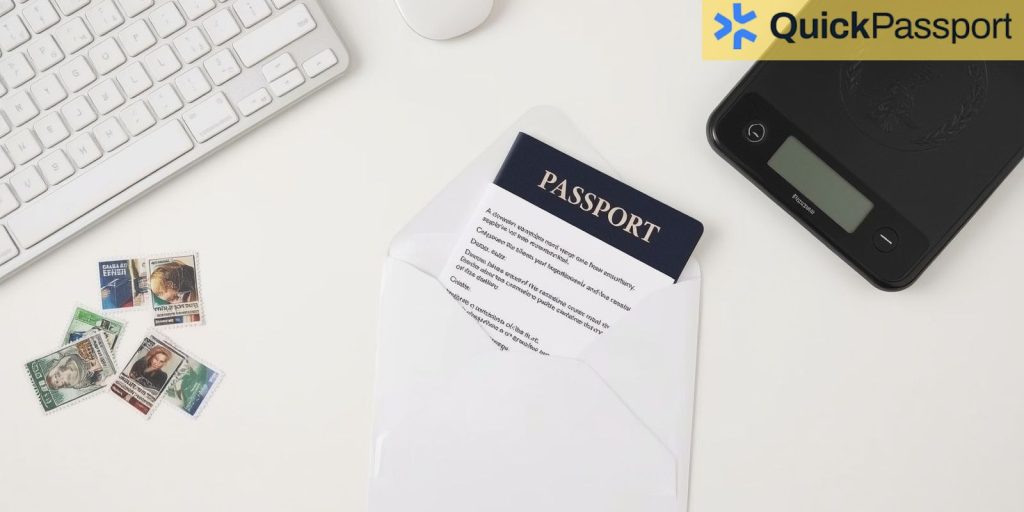
The documentation requirements for new applications are substantially more extensive than renewals, reflecting the need to establish both citizenship and identity from primary sources. You’ll need to provide evidence of U.S. citizenship through documents like a certified birth certificate issued by the city, county, or state of birth, a consular report of birth abroad, a naturalization certificate, or a certificate of citizenship. These primary documents must be original or certified copies, as photocopies or notarized copies are not acceptable for passport purposes.
Identity verification requires a separate set of documentation that establishes who you are in relation to the citizenship documents provided. Acceptable identification includes a current driver’s license, government employee ID, military ID, or other forms of government-issued photo identification. If you don’t have acceptable photo ID, you can use a combination of non-photo identification documents along with an identifying witness who has known you personally for at least two years and can provide acceptable identification themselves.
The in-person appearance requirement distinguishes new applications from renewals and serves multiple security purposes. During your appointment at an authorized passport acceptance facility, an acceptance agent will review your documents, verify your identity, witness your signature on the application, and ensure all requirements are properly met. This face-to-face verification adds a crucial human element to the security process and allows for immediate resolution of any documentation questions or concerns.
Scheduling appointments at acceptance facilities can sometimes present logistical challenges, particularly during peak travel seasons when demand exceeds available appointment slots. Many facilities require advance scheduling, and popular locations may have waiting periods of several weeks. This scheduling requirement makes early planning essential for anyone needing a new passport, especially when working with firm travel deadlines.
The application form for new passports (DS-11) requires more detailed information than renewal forms, including questions about your travel plans, emergency contacts, and previous passport history. This comprehensive information gathering helps establish your travel patterns and provides important data for passport security and citizen services. Unlike renewal applications, new applications cannot be submitted by mail and must be processed through authorized acceptance facilities.
Cost Differences and Fee Structures
Understanding the financial implications of passport renewal versus new application processes helps you budget appropriately and make informed decisions about service levels and timing. While both processes involve federal fees set by the State Department, the fee structures differ in ways that can significantly impact your total costs, especially when expedited services or additional documentation needs come into play.
Passport renewal fees are generally more straightforward, consisting primarily of the application fee for the passport book, with optional add-ons for passport cards or expedited processing. As of 2025, the standard renewal fee for a passport book is $130, with an additional $60 for expedited service if you need faster processing. Passport cards, which can be used for land and sea travel to Canada, Mexico, and the Caribbean, cost an additional $30. These fees are paid directly to the State Department and can be submitted with your renewal application.
New application fees include both the passport application fee and an execution fee paid to the acceptance facility where you submit your application. The application fee for a new passport book is $130, the same as renewal, but you’ll also pay a $35 execution fee to the acceptance facility. This execution fee compensates the facility for their role in document verification and application processing. If you’re also obtaining a passport card, there’s an additional $15 fee, making the total for both book and card $180 plus the execution fee.
Expedited processing costs the same $60 regardless of whether you’re renewing or applying for a new passport, but the timeline implications differ between the two processes. Expedited renewal typically reduces processing time to 2-3 weeks, while expedited new applications may still take 3-5 weeks due to the additional verification steps involved. For urgent travel needs, both processes offer expedited service at passport agencies, but this requires proof of immediate travel and involves additional fees and appointment scheduling.
Additional costs can arise in both processes but tend to be more common with new applications. If you need to obtain certified copies of birth certificates or other citizenship documents, these costs can range from $10-50 depending on the issuing authority. Passport photos, required for both processes, typically cost $10-15 at most locations. For new applications, transportation to acceptance facilities and potential time off work for appointments represent additional indirect costs that renewal applicants can often avoid.
Some situations may involve unexpected fee implications that aren’t immediately obvious. If your renewal application is rejected due to eligibility issues and you need to reapply using the new application process, you’ll forfeit the renewal fees and need to pay the full new application fees. Similarly, if you need to replace a lost or stolen passport that would otherwise be eligible for renewal, you’ll need to use the new application process and pay the associated fees.
For Miami residents seeking cost-effective passport services, QuickPassport – Miami offers transparent pricing and can help you understand all applicable fees upfront, ensuring you budget appropriately for your specific situation and timeline requirements.
Processing Times and Timeline Considerations
Processing timelines represent one of the most critical differences between passport renewal and new application procedures, with implications that extend far beyond simple waiting periods. These timeline differences can impact travel planning, booking strategies, and even emergency travel situations. Understanding the factors that influence processing times helps you make informed decisions about when to apply and which service level best meets your needs.
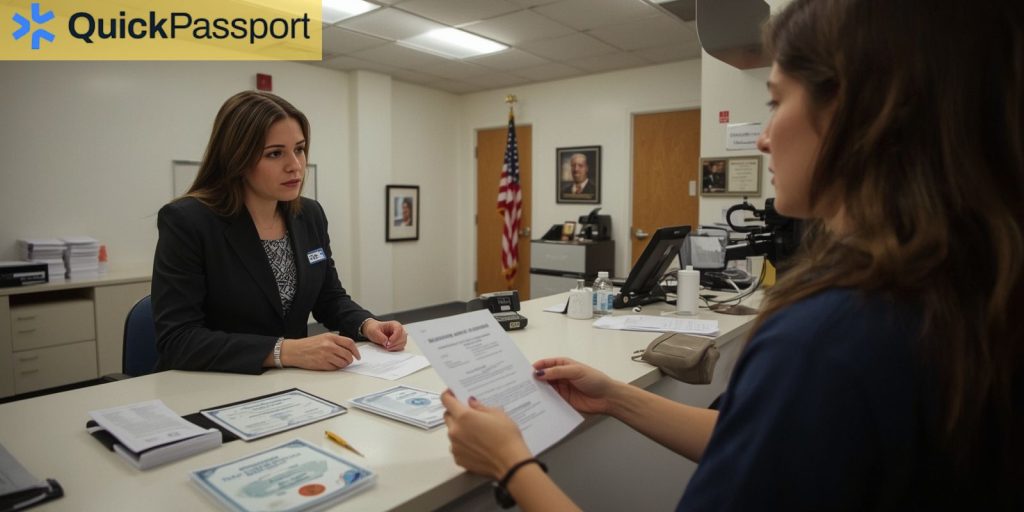
Standard passport renewal processing typically takes 6-8 weeks from the time your application is received at the processing facility. This timeline reflects the streamlined nature of renewal verification, where much of the identity and citizenship confirmation work has already been completed. The process primarily involves verifying that your previous passport meets renewal criteria, confirming your identity matches previous records, and producing your new passport with updated security features and expiration dates.
New passport applications generally require 8-11 weeks for standard processing, with the additional time reflecting the comprehensive verification procedures involved. Every aspect of your citizenship and identity must be verified from primary sources, which involves multiple review stages and potential additional verification steps. The in-person appointment requirement also adds scheduling variables that can extend the overall timeline, particularly during busy travel seasons when appointment availability becomes limited.
Expedited processing options are available for both renewal and new applications, but the actual timelines achieved differ between the two processes. Expedited renewal typically delivers results in 2-3 weeks, while expedited new applications may still require 3-5 weeks due to the inherent complexity of comprehensive verification procedures. These expedited timelines begin from when your application is received, not from when you submit it, so mailing time and appointment scheduling can add additional days to your total timeline.
Peak travel seasons significantly impact processing times for both renewal and new applications, but new applications tend to experience more dramatic delays. Spring and early summer represent the busiest periods, when families prepare for summer vacations and students arrange for study abroad programs. During these periods, appointment availability at acceptance facilities can extend normal timelines by several weeks, and processing facilities may experience backlogs that push even expedited applications beyond normal timeframes.
Emergency travel situations require special consideration and may involve expedited services at passport agencies rather than standard processing facilities. These services are reserved for travelers with documented immediate travel needs and involve additional fees, appointment scheduling, and proof of travel requirements. Both renewal and new application customers can access these emergency services, but new applications may require additional documentation verification even in emergency situations.
Regional processing variations can also impact timelines, with some facilities experiencing higher volumes or staffing challenges that affect processing speeds. Miami residents benefit from proximity to multiple processing options, but understanding local patterns and seasonal variations helps optimize timing decisions. Weather events, federal holidays, and other disruptions can also impact processing timelines, making buffer time essential for any firm travel deadlines.
Documentation Requirements Comparison
The documentation requirements for passport renewal versus new applications represent perhaps the most tangible difference between these two processes, with implications for preparation time, costs, and potential complications. Understanding exactly what documents you’ll need for each process helps you gather materials efficiently and avoid delays caused by missing or inadequate documentation.
Passport renewal documentation requirements are deliberately minimal, reflecting the State Department’s confidence in previous verification processes. You’ll need your most recent U.S. passport, which serves as both proof of citizenship and identity for renewal purposes. This passport must be undamaged and in your possession – damaged passports or those that have been reported lost or stolen cannot be used for renewal applications. The passport will be returned to you along with your new passport, maintaining continuity in your travel documentation.
The DS-82 application form for renewals is shorter and less detailed than new application forms, focusing primarily on current information and any changes since your last passport issuance. You’ll need one recent passport photo meeting current State Department specifications, including size, background, and image quality requirements. The photo requirements are identical for both renewal and new applications, but renewal applicants often find the overall process less intimidating due to the reduced documentation burden.
New passport applications require comprehensive documentation to establish both citizenship and identity from primary sources. Citizenship documentation must be original or certified copies of documents like birth certificates issued by the city, county, or state where you were born. Hospital birth certificates, delayed birth certificates, or photocopies are not acceptable. Foreign-born U.S. citizens need consular reports of birth abroad, naturalization certificates, or certificates of citizenship as appropriate to their situation.
Identity verification for new applications requires separate documentation that establishes your current identity in relation to the citizenship documents provided. A current driver’s license is the most commonly used identity document, but government employee IDs, military IDs, and other government-issued photo identification are also acceptable. The identity document must be current and include your photo, signature, and identifying information that matches your application.
Name change documentation represents a common complication that can affect both renewal and new application processes differently. For renewals, name changes can be accommodated if you provide certified copies of marriage certificates, divorce decrees, or court orders that document the change. However, complex name change histories or inability to document changes may disqualify you from renewal eligibility, forcing you into the new application process.
Special circumstances can create additional documentation requirements for both processes. Military personnel may need orders or other documentation, adoptees might require additional identity verification, and individuals with previous passport problems may need extra supporting materials. These special circumstances are more commonly addressed through new application processes, which offer greater flexibility for complex documentation situations.
Document preparation timelines can significantly impact your overall passport timeline, particularly for new applications. Obtaining certified birth certificates can take several weeks depending on the issuing jurisdiction, and some states have backlogs that extend these timelines further. Planning for document acquisition time becomes essential when working with firm travel deadlines, especially for new application processes that require more extensive documentation.
Frequently Asked Questions
Can I renew my passport if it expired more than 5 years ago?
Yes, you can still renew your passport if it expired more than 5 years ago, as long as it was issued within the last 15 years and meets all other renewal criteria. The 15-year timeframe is measured from the issue date, not the expiration date, so a 10-year passport issued 12 years ago would still be eligible for renewal even though it expired 2 years ago.
What happens if my renewal application is rejected?
If your renewal application is rejected, you’ll receive notification explaining the reason for rejection along with your returned documents. You’ll need to apply for a new passport using the DS-11 form and following new application procedures. Unfortunately, renewal fees are not refunded or transferred to new applications, so you’ll need to pay the full new application fees including the execution fee.
Can I travel domestically while my passport renewal is being processed?
Since you must submit your current passport with your renewal application, you won’t have it available for domestic travel during processing. However, you can request expedited return of your current passport for an additional fee if you need it for domestic travel, though this may delay processing of your new passport.
Do children’s passports ever qualify for renewal?
No, passports issued to children under 16 never qualify for renewal, regardless of when they were issued or how much time has passed. When a child’s passport expires, they must apply for a new passport using the DS-11 form, appear in person with both parents or legal guardians, and provide all required documentation for new applications.
Can I add pages to my passport instead of renewing it?
No, the U.S. State Department discontinued the passport page addition service in 2016. If your passport is running out of pages, you must apply for a new passport. If your current passport otherwise meets renewal criteria, you can use the renewal process to get a new passport with fresh pages.
What if I need to change my name during the renewal process?
If your legal name has changed since your last passport was issued, you can still use the renewal process if you provide certified documentation of the name change, such as a marriage certificate, divorce decree, or court order. However, if you cannot document the name change or if multiple name changes have occurred, you may need to apply for a new passport instead.
Can I use a damaged passport for renewal?
No, damaged passports cannot be used for renewal applications. If your passport has significant damage such as water damage, torn pages, missing pages, or a damaged cover, you must apply for a new passport using the DS-11 form and new application procedures, even if the passport would otherwise meet renewal criteria.
Is expedited processing available for both renewal and new applications?
Yes, expedited processing is available for both renewal and new applications for an additional $60 fee. However, processing times differ between the two, with expedited renewals typically taking 2-3 weeks and expedited new applications requiring 3-5 weeks due to additional verification requirements.
Conclusion
Understanding the differences between passport renewal and new application processes empowers you to make informed decisions that can save time, money, and stress in your travel planning. The key lies in honestly assessing your current passport status against the specific renewal criteria and choosing the appropriate pathway from the outset. While renewal offers significant convenience advantages for eligible applicants, new applications provide the comprehensive verification necessary for first-time applicants and those whose circumstances have changed since their last passport issuance.
The documentation, timeline, and cost differences between these processes are substantial enough to impact your travel planning strategy significantly. Renewal applicants benefit from streamlined procedures, mail-based submission options, and generally faster processing times, while new application candidates must navigate more complex documentation requirements, in-person appointments, and longer verification procedures. Neither process is inherently better than the other – they’re designed to serve different situations and security requirements within the passport system.
For Miami residents planning international travel, early preparation and accurate process identification become essential elements of successful passport acquisition. Whether you’re eligible for renewal or need to pursue a new application, understanding the specific requirements and timelines allows you to plan appropriately and avoid last-minute complications that could jeopardize your travel plans.
QuickPassport – Miami stands ready to help you navigate either process with expert guidance tailored to your specific situation and timeline requirements. Our experienced team understands the nuances of both renewal and new application procedures and can help ensure your passport application proceeds smoothly and efficiently, regardless of which pathway applies to your circumstances.

